Conventional Loan Requirements and Mortgage Rates
Conventional Loan Benefits
- Low down payment: get a conventional loan with as little as 3% down
- No upfront mortgage insurance: Unlike USDA, FHA, and VA loans, conventional mortgages do not require an upfront mortgage insurance premium or funding fee
- Cancellable PMI Unlike FHA or USDA loans, private mortgage insurance (PMI) automatically cancels once you have 20 percent equity in the home. You can also avoid PMI altogether if you make a down payment of 20% or more.
- Fewer property restrictions: Conventional home loans are go-to products if you’re buying an investment property or a second home since government-insured loans, including USDA, VA, and FHA, do not allow those property types
- Higher loan limits: Compared to FHA loans, conventional loans have higher limits, so you may be able to finance a more expensive home

Compare Conventional Mortgage Rates
Find out if a 30-year fixed loan is right for you.

Conventional Loan Requirements
Understanding the essentials for securing a conforming conventional loan is key when you’re in the market for a new home. These criteria are fundamental in determining if you qualify for a conventional loan. Here’s a straightforward overview of what you’ll need for this mortgage type:
Down Payment
If you’re buying a home for the first time, you might be surprised to learn that you can start with as little as a 3% down payment. However, the exact amount you need can change based on several things, such as how much debt you have compared to your income, your credit history, and the type of loan or property you’re interested in:
- Non-first-time buyers or those earning no more than 80% of their area’s median income face a 5% down payment requirement.
- Multi-unit properties, not single-family homes, may necessitate a 15% down payment.
- Purchasing a second home? Prepare to put down at least 10%.
- Choosing an adjustable-rate mortgage (ARM)? A minimum 5% down payment is required.
Using a mortgage calculator can unlock how your down payment impacts your monthly mortgage payments.

Private Mortgage Insurance (PMI
When you get a conventional loan and your down payment is under 20%, you’ll need to pay private mortgage insurance (PMI). This insurance is there to protect the lender just in case you can’t pay back the loan. The amount you pay for PMI can change based on the loan details, your credit score, and how much you put down.
The good news is, PMI doesn’t stick around forever. You don’t have to refinance your loan to get rid of it. Once you’ve paid enough of your loan to own 20% of your home through your monthly payments, you can ask your lender to stop charging you for PMI. Also, if your home goes up in value, a new evaluation might show you’ve got enough equity to drop the PMI even sooner. Lenders are supposed to cancel it automatically once you hit 22% equity.

Other Requirements
- Credit Score: A credit score of at least 620 is required for a conventional loan approval. Lenders assess your credit history to verify your eligibility.
- Debt-to-Income Ratio (DTI Your DTI represents the portion of your income allocated to debt payments. It’s calculated by dividing your total monthly debt payments by your gross monthly income. For a conventional loan, a DTI up to 50% may be acceptable, though a lower DTI enhances approval chances.
- Loan Size: Your loan amount must adhere to the conforming loan limits established by Fannie Mae and Freddie Mac. As of 2024, the limit for a single-family home is $766,550, with higher limits in places like Alaska and Hawaii, reaching up to $1,149,825. For specific loan limits in your area, consult the Federal Housing Finance Agency’s website.
Compare Current Mortgage Interest Rates
Apply online for expert recommendations with real interest rates and payments.
FAQ
Find Out Answers Here
Conventional mortgages hold the title as the most popular type, with lenders originating more than 4.1 million conventional loans in 2022. This contrasts with over 1.3 million nonconventional mortgage originations, including FHA, VA, and USDA mortgages, highlighting the diverse needs of homebuyers.
VA loans often feature the lowest interest rates, benefiting from the support of the Department of Veterans Affairs. However, FHA mortgages also offer competitive rates, particularly for those with less-than-perfect credit histories. Ultimately, securing the best rates depends on various factors, including credit score, debt-to-income ratio, property type (single-family home, condo, or multi-family and down payment size.
FHA mortgages are generally considered the easiest to qualify for, designed to assist those with lower incomes or less-than-ideal FICO scores. If you’re finding it challenging to qualify for a conventional mortgage, an FHA loan could be a viable path to homeownership.
Many first-time homebuyer programs allow buyers who haven’t owned a property in the past three years. This includes divorced spouses who have only jointly owned a home with an ex-spouse.
Choosing the best mortgage lender will depend on the home loan options you’re applying for, how much you want to borrow, the term of the loan, mortgage interest rate, and many other factors. Review our guides for best mortgage lenders, top FHA lenders, and best VA lenders.
Choosing the right mortgage is a significant decision that will impact your finances for years to come. Whether you’re considering a loan backed by the U.S. Department of Veterans Affairs to take advantage of lower mortgage rates without the need for upfront mortgage insurance or exploring a USDA mortgage to purchase a home in a rural area, tools like a mortgage calculator can be invaluable. They help you understand the total loan cost, including the life of your loan and potential higher monthly payments. Remember, making a down payment can reduce your monthly obligations and increase the equity in your home from the start. Ultimately, the best path forward involves careful consideration of your ability to qualify for a mortgage, the type of loan that suits your financial situation, and how long you plan to stay in your home, ensuring you select the mortgage that aligns with your long-term goals.


